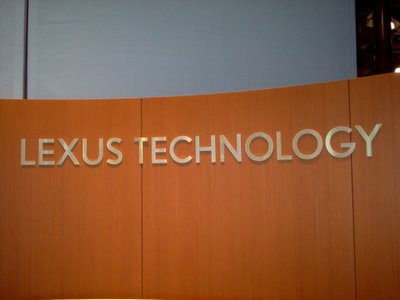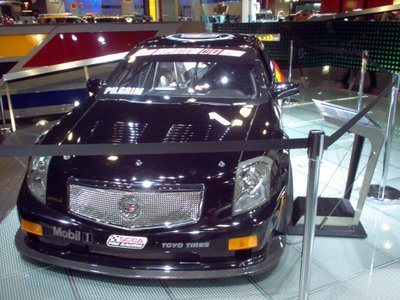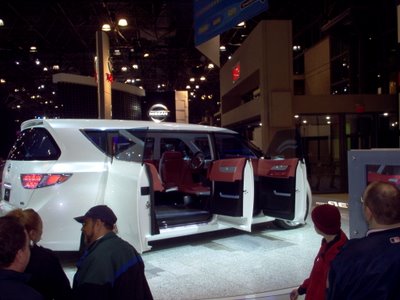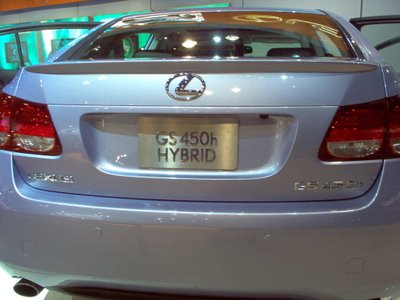
Which banque would you put your money in? The institution that sets a conservative and conservationist tone for an unnerving future of uncertainty? Or, the financial house that throws caution to the wind and invests in as many dot-com firms as possible?
I cannot help but feel that the production trends of many of the automakers at the New York Auto Show are more than slightly out of touch with the geo-political/economic reality in which we face and therefore are of the latter classification.
In fairness, there are actually three groups.
The 1928 flappers who take the to-hell-with-the-consequences-increase-the-horsepower attitude:
Audi, BMW, Cadillac, Chrysler, Dodge, Mercedes-Benz, Porsche, Maserati, Ferrari, Bentley, Maybach

The sit on the fencers who try to appeal to everyone by offering horsepower next to hybrids: Ford, GM (i.e. Saturn, GMC, etc.)
And the way of the future greens, focusing on energy efficient solutions: Toyota, Saab (though it's part of GM), Honda
Of course, the 1928 flappers cater mostly to the well to do, of whom most wouldn't care if gas prices were $5 per gallon (Heaven forefend). And both Ford and GM realize the precariousness of putting money and effort behind hot rods and SUVs, but can't seem to help themselves because they remain popular.
But, if Toyota and Honda were to get their way with advanced, energy saving technologies, then surely we'd all be driving around in remote controlled pods one day - right? Quite possibly. There were a few designs from Toyota that looked a little too anti-enthusiast-pod-of-the-future for my tastes.

But then again, Toyota's Lexus division is working hard trying to blend performance with energy saving technology to interesting effect. I shall opine more on this in the Lexus post.

It is fundamentally important to note that the function of the automobile, first and foremost, is as a time travel device to get us from A to B. If that role cannot be met due to dire circumstances (i.e., gas shortages) any car 12bhp or 1,000bhp is resigned to being ultimately useless. I applaud Lexus' efforts to meet both the demands of the enthusiasts and the green demands that the uncertain future of energy consumption and availability necessitates.

The sit on the fencers who try to appeal to everyone by offering horsepower next to hybrids: Ford, GM (i.e. Saturn, GMC, etc.)
And the way of the future greens, focusing on energy efficient solutions: Toyota, Saab (though it's part of GM), Honda
Of course, the 1928 flappers cater mostly to the well to do, of whom most wouldn't care if gas prices were $5 per gallon (Heaven forefend). And both Ford and GM realize the precariousness of putting money and effort behind hot rods and SUVs, but can't seem to help themselves because they remain popular.
But, if Toyota and Honda were to get their way with advanced, energy saving technologies, then surely we'd all be driving around in remote controlled pods one day - right? Quite possibly. There were a few designs from Toyota that looked a little too anti-enthusiast-pod-of-the-future for my tastes.

But then again, Toyota's Lexus division is working hard trying to blend performance with energy saving technology to interesting effect. I shall opine more on this in the Lexus post.

It is fundamentally important to note that the function of the automobile, first and foremost, is as a time travel device to get us from A to B. If that role cannot be met due to dire circumstances (i.e., gas shortages) any car 12bhp or 1,000bhp is resigned to being ultimately useless. I applaud Lexus' efforts to meet both the demands of the enthusiasts and the green demands that the uncertain future of energy consumption and availability necessitates.
No comments:
Post a Comment